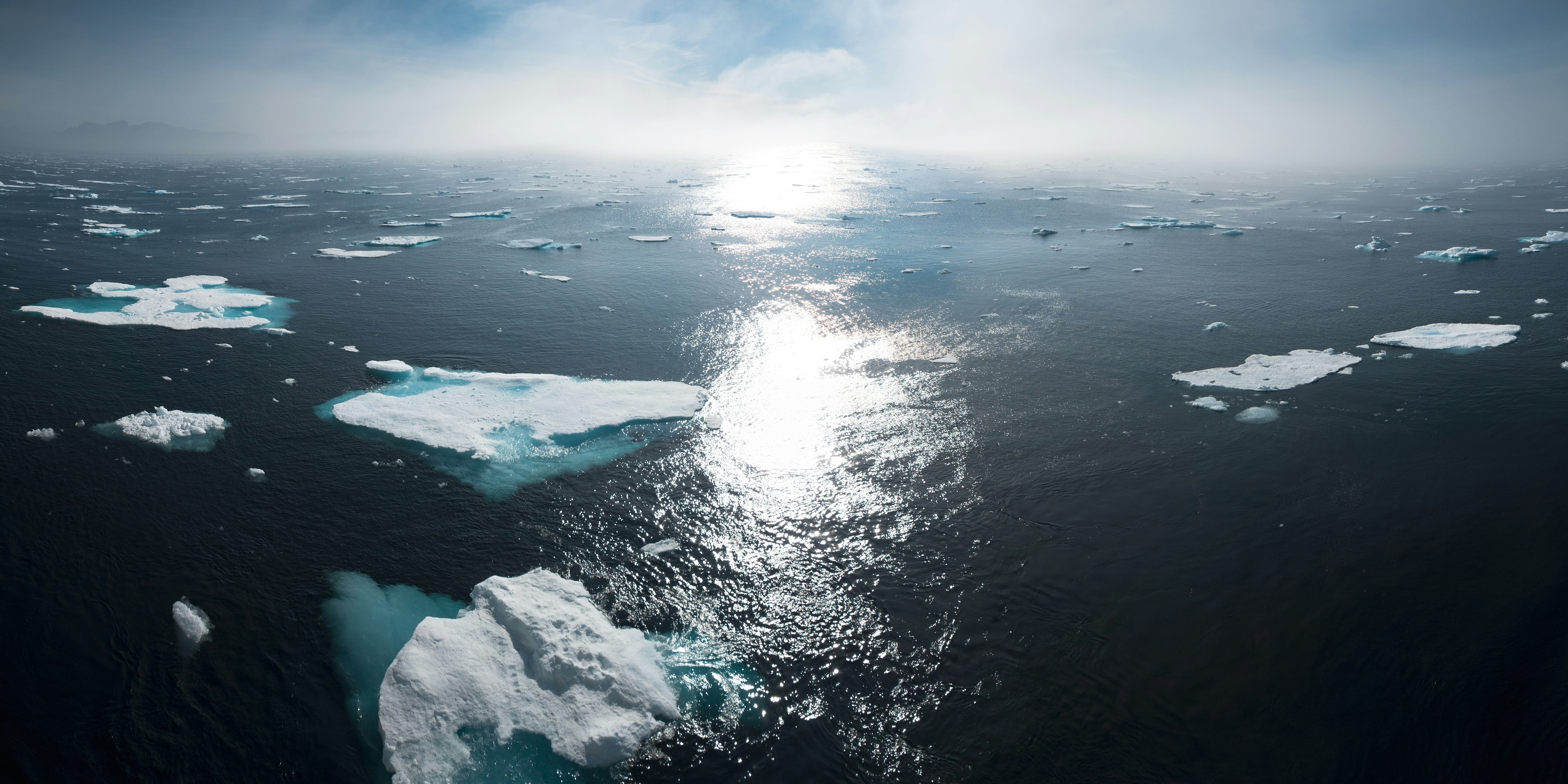Scientists expect global heating to exceed 1.5°C, and other nature and climate stories you need to read this week

Top nature and climate news: The ocean has broken temperature records every single day for a whole year and more Image: Unsplash/William Bossen
- This weekly round-up contains key nature and climate news from the past week.
- Top nature and climate stories: Scientists foresee at least 2.5°C of global heating this century; Ocean temperatures continue to rise; Renewable energy produced more than 30% of the world’s electricity in 2023.
1. Planet is headed for at least 2.5°C of heating, finds poll of scientists
Many of the world’s leading climate scientists expect global temperatures to rise to at least 2.5°C above pre-industrial levels this century, according to a survey by The Guardian.
Almost 80% of respondents from the Intergovernmental Panel on Climate Change, foresee at least 2.5°C of global heating. Almost half are concerned that temperatures would rise to at least 3°C, with only 6% thinking the internationally agreed 1.5°C limit would be possible.

The survey found that opinions were dependent on age and gender, but not based on geographical location. Younger scientists were found to be more pessimistic. 52% of respondents under 50 expected a rise of at least 3°C, compared to just 38% of those over 50.
A similar difference was found between genders. 49% of female scientists believe that global temperature will rise to at least 3°C, compared with 38% of male scientists.
Peter Cox, at the University of Exeter, told The Guardian that: “Climate change will not suddenly become dangerous at 1.5°C – it already is. And it will not be ‘game over’ if we pass 2°C, which we might well do.”
The climate fight must continue, with many leading scientists urging that every fraction of a degree avoided would reduce the impact of the consequences for humanity and the planet.
How is the World Economic Forum fighting the climate crisis?
2. The ocean has broken temperature records every single day for a whole year
Data from the EU's Copernicus Climate Service shows the ocean is at serious risk from a record-breaking year of heat, with some days experiencing huge margins of difference, the BBC reports.
Caused by intersecting factors, including planet-warming gases and El Niño, the increasing temperatures of our seas have had drastic consequences for marine life resulting in a new wave of coral bleaching.

Copernicus also confirmed that April was the warmest on record for global air temperatures, making it the 11th record-breaking month in a row.
The ocean absorbs around a quarter of the carbon dioxide that humans produce, as well as 90% of the excess heat produced. However, they are increasingly feeling the heat.
The average surface temperature of the ocean began to accelerate far above the long-term norm from March 2023, hitting a record high in August.
3. News in brief: Other top nature and climate stories this week
Biodiversity loss is the biggest environmental driver of infectious disease outbreaks, according to a new study published in Nature, The Guardian reports. Of the five global change drivers analyzed, loss of species was determined to put the world most at risk of widespread disease outbreaks – followed by climate change and the introduction of non-native species.
Venezuela is thought to be the first country to have lost all of its glaciers in modern times. Once home to six of them, the country has now lost its last remaining glacier - the Humboldt Glacier, also known as La Corona – after it shrunk so much that scientists have reclassified it as an ice field.
Following a rapid rise in wind and solar power, renewable energy accounted for more than 30% of the world’s electricity for the first time in 2023, found climate thinktank Ember.
Poorer countries must be more transparent about their progress on cutting emissions and climate spending to support their calls for vast sums of climate finance, says the president of global climate negotiations.
After experiencing the worst drought in five decades, Costa Rica has announced an electricity rationing plan, as the severe lack of rainfall hampers the efficiency of its hydroelectric plants.
4. More on the nature and climate crisis on Agenda
The automotive industry is responsible for 10% of the world’s carbon dioxide emissions as the producer of 80 million vehicles annually. As environmental concerns mount, find out how the sector is navigating the sustainability drive.
Emerging technologies like Augmented and Virtual Reality can bolster climate action efforts, find out how they're offering new ways for us and our leaders to connect with the climate crisis and its solutions.
Climate change is predicted to cut average incomes by almost 20%, with more frequent and extreme weather events predicted to cause $38 trillion of destruction every year by the middle of the 21st century. Find out more.